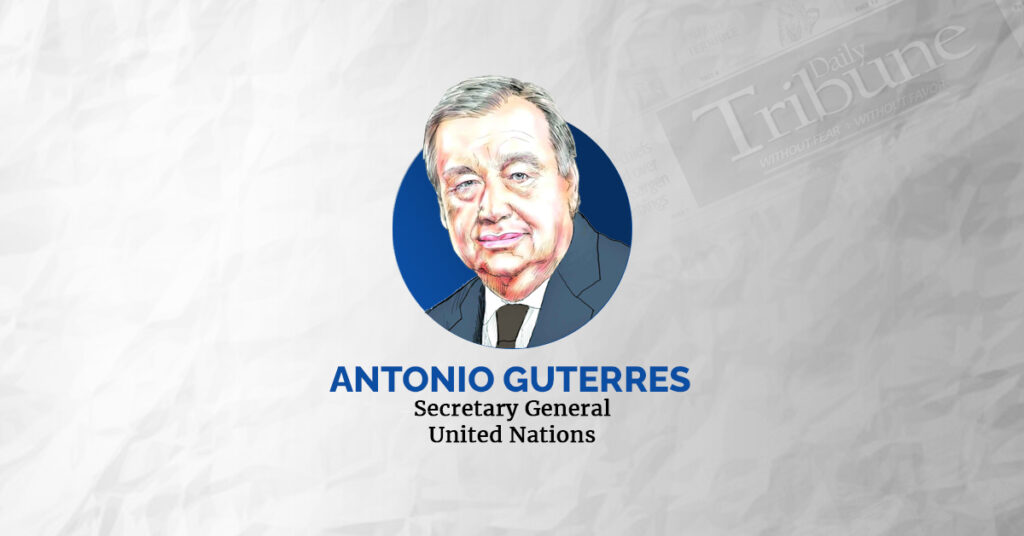We need peace with justice. Today’s global financial architecture, based on frameworks agreed nearly 80 years ago, is outdated, dysfunctional and unfair. It has failed the world’s poorest countries, still suffering the impacts of the Covid-19 pandemic and the war in Ukraine.
They will owe more in debt service this year than their public spending on health, education and infrastructure — combined. Unfortunately, we still lack an effective debt relief mechanism. All this is a development emergency with deep implications for global security.
We need urgent action in two areas: a stimulus of $500 billion annually in affordable long-term finance for developing countries to invest in the Sustainable Development Goals, as endorsed by the UN General Assembly in September. We are working with a small group of Heads of State to champion and monitor its implementation. And we need a new Bretton Woods moment to reform the global financial architecture, so that it corresponds to today’s global economy and is able to create a true global safety net, in particular for developing countries drowning in debt.
The Summit of the Future will consider the need for deep reforms to make these institutions and frameworks truly universal and inclusive and based on the rule of law. This is essential to create a global economy that works for everyone, everywhere.
Finally, we must end our war with nature. The climate crisis is gathering pace. Last year was the hottest on record. It could be the coolest for many years to come.
The next few years are decisive. Emissions must have peaked by next year — 2025 — and must fall by 45 per cent by 2030.
We have the tools. We know what to do. We need to progressively phase out fossil fuels and promote a just and equitable transition to renewable energy, led by the G20 countries that are responsible for 80 percent of global emissions.
The next two years must see ambitious nationally determined contributions — national climate plans — from every country, covering every sector.
We also need to triple global renewable energy capacity, double the energy efficiency by 2030 and unlock the necessary finance for developing countries, from public and private sources, so they can meet the growing demand for electricity with the infinite, clean energy of renewables.
All financial commitments made by developed countries in support of climate action, both in mitigation and adaptation, must be met.
It is clear that our world is in deep trouble.
Global governance in its present form is entrenching divisions and fueling discontent. We must work based on justice, with renewed urgency and solidarity.
There is always an opportunity to create a more inclusive, comprehensive and effective global order that works for everyone based on international law.
A safer world — and a bigger pie — for all. That is the objective of the UN Summit of the Future in September. Let’s seize the opportunity.
(Excerpts of UN Secretary-General António Guterres’ remarks to the Munich Security Conference on 16 February 2024).
